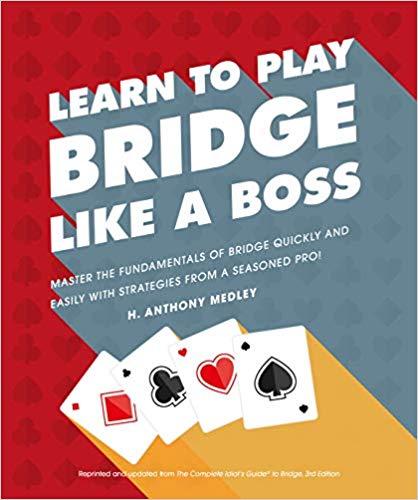|
Play like a pro with expert knowledge from a champion of the game If you don't know the ins and outs of play, bridge can seem like an intimidating game--but it doesn't have to be! Armed with the techniques and strategies in the pages of this book, you'll be bidding and winning hands like a boss! A good book for beginners, it has lots of advanced techniques useful to experienced players, too. This is as close to an all-in-one bridge book you can get.
About the Author |
||
|
1917 (7/10) by Tony Medley 130 minutes R There are formulas and formats for movies. Even though this is written (with Kristy Wilson-Cairns) and directed by Sam Mendes, this movie about WWI follows a format that is probably older, but which I first saw in A Walk in the Sun (1945), directed by Lewis Milestone. Then I saw it again in Saving Private Ryan (1998) directed by Steven Spielberg. The format is soldiers embark on a long walk through battlefields. Thereís a lot of talk among them. Then they have a battle. Then they keep walking. Then thereís the climax. Private Ryan was so similar to A Walk in the Sun that itís not possible that the latter was not used as a guide for writing and making the film, even though no credit was given. Here it is again. The gist of the story is that two enlisted men, Lance Corporal Schofield (George MacKay) and Lance Corporal Blake (Dean-Charles Chapman) are ordered by General Erinmore (Colin Firth; donít blink or youíll miss him) to traipse a long way through no manís land to instruct Colonel MacKenzie (Benedict Cumberbatch) not to attack because it is a trap. Off they go on their journey, closely following the formula. Itís a long way but as they walk they talk, and they walk, and they walk. While we see the trenches, the walk takes them through land that seems untouched by war. This is the part of the film that is really hard to stomach. Are we to truly believe that these two enlisted men can stroll blithely through one of the cruelest battlefields in history all by themselves, chatting about this and that? But when they come to any habitation, we see the devastation caused by this cruel (indeed, idiotic) war. There is one scene with a woman and a baby in a seemingly deserted bombed-out city that stretches credulity to the breaking point. This may be appropriate in a movie that was intended to be phantasmagoric, but thatís not this one that is rooted in appalling realism. Although Cumberbatch and Firth are listed as among the stars, donít go to see it because of them because their roles are little more than cameos. Even though itís too long to tell such a simple story, the production values are very good and Mendes does keep the tension up, which is quite a task, given its length. There are some scenes, especially of Schofield in a raging river, that are compelling. Itís an OK film, but WWI was a war started and run by self-centered elitist imbeciles. A German general is said to have referred to the British army as ďlions led by donkeys.Ē This film doesnít touch on that like Stanley Kubrickís Paths of Glory (1957) did. In truth, had the Americans not intervened they would probably still be fighting it, but this film is totally silent on that. I originally rated this film higher, but the more I thought about it, the less esteem I had. The main objection I have is that it has no reason for being. It barely touches on the horror of the trench warfare of the Western Front, where it takes place, nor does it show the futility of the war itself. Whatís the point? Had I been making it, I would have had a much different dťnouement than this gutless one. Paths of Glory is a film that stays with you for a lifetime; 1917 is eminently forgettable.
|
||
